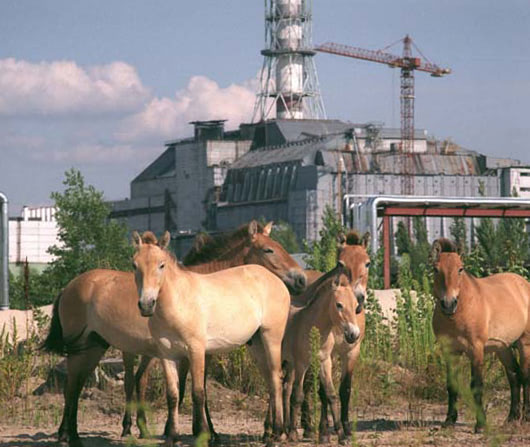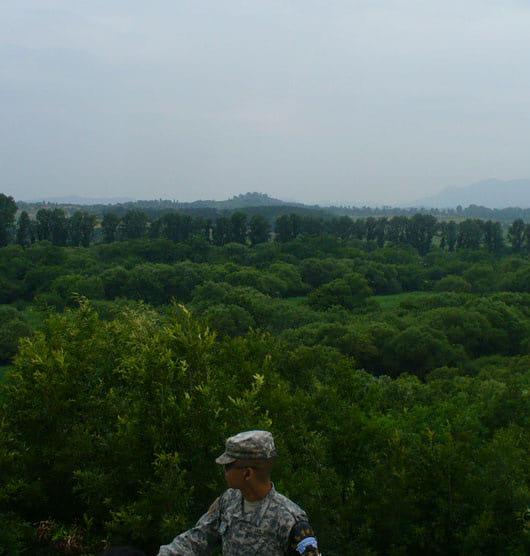Imagine your cruise to the Galapagos came with a ghoulish warning: "Your hair will fall out, your skin will blister, you'll probably get cancer and your children's children might be born deformed." Not enough of a deterrent? How about "We'll shoot you on sight"? If you're a visiting tourist or a fisherman looking to poach some tuna or turtles, you might decide to hightail it back to the mainland.
Human culture normally creates areas amenable to other humans, but to few other species. Apartment blocks, parking lots, suburbs and Starbucks are pretty great for us, but miserable, even uninhabitable, to most creatures more specialized than a pigeon. 'Involuntary parks,' a term coined by Next Nature favorite Bruce Sterling, arise when warfare or industrial accidents upset the normal balance of human land-use. Soldiers shoot their enemies but not the birds. Radiation warnings will keep out the evacuated citizens, but not the bears and tigers.
Few humans are bold enough to get close to the remains of the Chernobyl nuclear power plant, but in the 25 years after the disaster, wolves, moose, lynx, and wild boar have moved back into a landscape mysteriously empty of humans. A band of transplanted Przewalski's horses are thriving, despite the fact that these Pleistocene holdovers have been extirpated from just about everywhere else. In Korea, the Demilitarized Zone (DMZ) is now home to a thriving forest ecosystem, including the endangered red-crowned crane and amur leopard. There might even be a few tigers lurking in there somewhere. What to us is the stuff of nightmares must seem to the returning animals an inexplicable paradise (if not for the distant rattle of gunfire).

We create accidental edens at a steady clip. In particular, it's interesting to wonder about the future of the Fukushima Daiichi nuclear power plant. If the area is permanently evacuated, and fishing near the plant is banned, Japan may have created its newest anti-tourist attraction: a beach where no one can sunbathe, and water where no one can swim. The only 'tourists' will be the returning birds, animals and fish wondering why life suddenly got more idyllic, and for some species, wondering why their offspring started looking so funny.
Human culture ruins nature. For involuntary parks, human ruins cultivate nature.

Share your thoughts and join the technology debate!
Be the first to comment